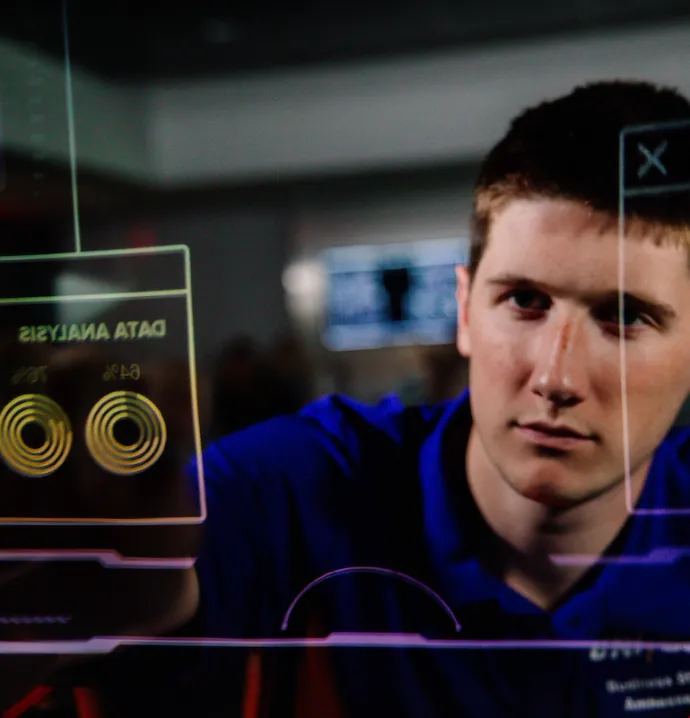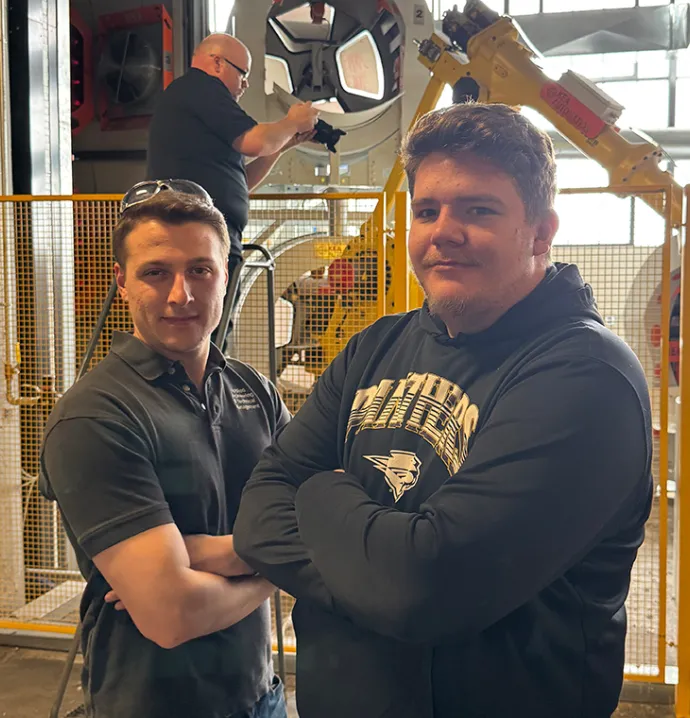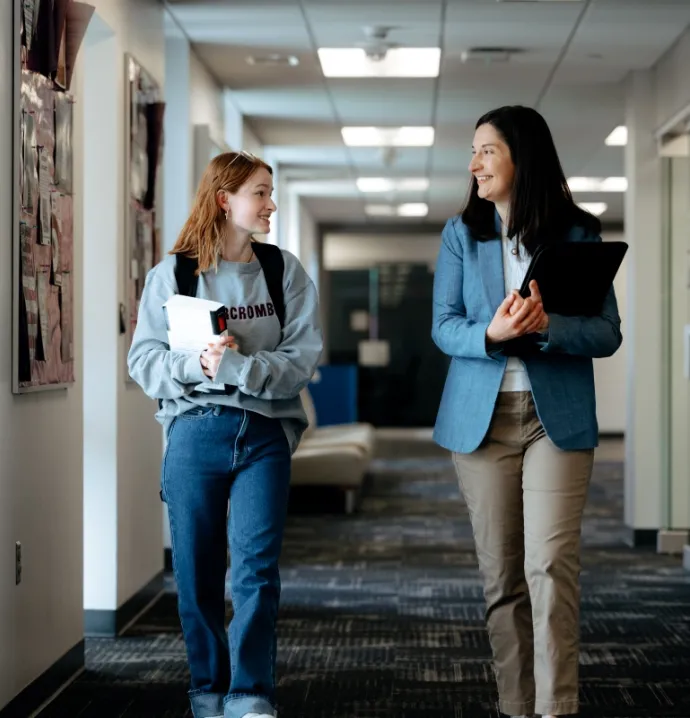UNI obtains state-of-the-art high performance computing system
UNI obtains state-of-the-art high performance computing system
High performance computing plays a crucial role in academic research – giving researchers the capacity to solve large, complex problems in less time and at less cost than traditional computing.
In an effort to keep up with the growing need for high performance computing (HPC) services across campus, the University of Northern Iowa has purchased an HPC system with help from a $363,676 grant from the Roy J. Carver Charitable Trust.
The HPC system, which is housed in the Curris Business Building, is being utilized by various departments across campus and can be used by all UNI students and faculty remotely. The Dell system features a set of processors that work together to analyze large data sets more efficiently and faster than a single computer.
The need for the HPC system was underscored by multiple departments across campus, who showed a growing demand for increased computing power. Students would have to wait a week or longer for analyses to run, and other processing requests were sent off campus to be computed. Having the HPC system on campus means students can get results back in the same class period, and faculty can perform research without waiting for outside help to process.
With the addition of HPC on campus, more and more classes have been utilizing the resource. Students in biology can sequence genomes, physics classes can do biological modeling, and business analytics students can crunch numbers and data sets.
Aleksandar Poleksic, a professor in the computer science department, is excited to have this game-changing technology on campus.
“HPC fuels scientific discoveries and technological advances,” Poleksic said. “The new system will enable the university to expand its course offerings in data science and train new generations of students to take on the challenges in this lucrative and fast-growing field.”
UNI already offers data science courses and degree programs, which include a B.A. in Physics: Data Science; a B.A. in Business Analytics; a data science minor that involves the departments of Computer Science, Mathematics, and Physics; and a certificate in Statistical Computing offered by the Department of Mathematics.
In addition, a new certificate in data science is being offered within the UNIFI (UNI Foundational Inquiry) general education program. Working with representatives from companies in engineering, insurance, finance and technology, faculty and staff identified industry needs and skills that they can teach students to better prepare them to enter the workforce with the necessary knowledge. The courses not only teach students how to interpret the data, but how to develop the right questions to ask, how to use the data ethically, and how to communicate results in a useful and impactful manner.
The new HPC system will further cement UNI’s commitment to furthering the reach of data science across campus.
“We think this is important enough that it’s something all students should have access to,” Maureen Clayton, Associate Dean of the College of Humanities, Arts and Sciences said. “Even if you’re not going into this field, it’s vital to understand how companies are collecting and using data. Going forward as an informed citizen, this is an important component.”
Having the computer system in-house will also allow UNI to apply for future grants involving its use, opening more doors for research and more opportunities for students.
For more information, or to request HPC assistance, contact Aleksandar Poleksic at aleksandar.poleksic@uni.edu




